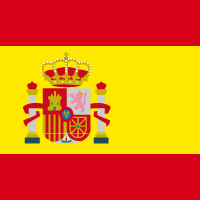Half of cloud users do not know who has jurisdiction over their data
The European Cloud Computing Strategy should encourage the use of in-country data centres and promote greater transparency over data location if it is to achieve its aim of protecting cloud users’ data, Claranet has urged.
The first draft of the strategy, which is being released by the European Commission tomorrow, will detail plans to address the regulatory framework of cloud computing and set pan-EU standards for data protection and retention, consumer protection and interoperability.
Michel Robert, UK Managing Director of managed services provider Claranet, argues that the report should strongly recommend that cloud providers give their customers a clear understanding of where their data is being hosted and, where possible, the choice of hosting their data in local facilities. Without clarity on data location it will become increasingly difficult to maintain and grow trust in the cloud, Robert says.
Data protection laws vary around the world, and even across European countries,” said Robert. “Businesses have the right to know where their sensitive and confidential information is being stored, and subsequently what protection and legislation this data is subject to. We expect and hope that the European Commission promote the benefits of, and encourage service providers to use in-country data centres for the territories in which they operate, and to make it transparent to their customers where their data is being stored.
“Data sovereignty is one of the biggest issues facing the cloud industry, and is one of the main concerns that users have with cloud services,” he continued. “Claranet polled 300 IT end-users about barriers to cloud adoption and found that almost half of them did not know which countries have legal jurisdiction over privacy control and data access. Moreover, two thirds said that data location was either important or extremely important when evaluating a cloud service provider.”
“Privacy laws are not standardised across Europe, and even some countries with quite strict legislation have anti-terrorism laws that can allow governments to access your data. End-users instinctively appreciate this, with 87 per cent of the respondents in our survey saying that they would be reassured if their data were stored in the UK.
“In this light, I believe that an important way to engender trust and transparency is for all customers to have the choice of where they store their data. Whether or not the European Commission explicitly recommends in-country data centres in tomorrow’s report, all providers should embrace them as an example of best practice, and to show commitment to promoting public trust in the cloud,” he concluded.
Find out more:
- For more information about Claranet's hosting portfolio, visit Claranet's hosting services.
- For more information about Claranet's Award-winning Virtual Data Centre service, visit Virtual Data Centre.
- To see a demonstration of Claranet's Award-winning service, visit Virtual Data Centre.
Press coverage:
- VitalOnline - European Cloud Strategy must tackle data location









